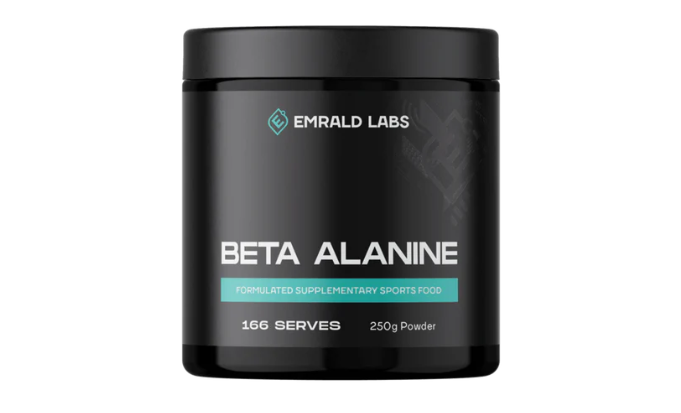Fitness enthusiasts and athletes are continually seeking that extra edge, that game-changing supplement that can enhance their performance and help them reach their peak physical potential. Among the myriad of supplements that claim to boost stamina and reduce fatigue, one has stood out for its efficacy and safety: beta alanine. Recognised for its significant role in improving exercise capacity and delaying muscle fatigue, beta alanine has been gaining popularity in the world of sports nutrition, and for good reason.
Understanding Beta Alanine and Its Role in Exercise Performance
Beta alanine is a non-essential amino acid that, when ingested, combines with another amino acid, histidine, to form carnosine in muscles. Carnosine acts as a buffer against the build-up of lactic acid, which is produced during intense physical activity and is associated with muscle fatigue. By increasing carnosine levels in the muscles through beta alanine supplementation, one can significantly improve their muscle endurance and performance during high-intensity workouts.
The Mechanism Behind Beta Alanine’s Performance Enhancement
The science behind beta alanine’s potent effects lies in its ability to combat the acidosis that occurs during strenuous exercise. When muscles work hard, they produce hydrogen ions as a byproduct, leading to a drop in pH levels within the muscle tissue. This drop in pH causes the muscle environment to become more acidic, a state known as acidosis, leading to the ‘burn’ sensation and the onset of fatigue. By maintaining higher levels of carnosine, muscles are better equipped to counteract this drop in pH, allowing for longer and more intense exercise sessions.
Studies Supporting Beta Alanine’s Efficacy
Research on beta alanine has shown positive results in various athletic disciplines. One study published in ‘Amino Acids’ found that four weeks of beta alanine supplementation increased total work done by 13% during incremental exercise. Another article in the ‘Journal of Applied Physiology’ reported that beta alanine extended the time to exhaustion in high-intensity cycling by 14%. Such findings make it clear why beta alanine is regarded as a powerful ally for those aiming to push their physical limits.
Optimising Dosing for Maximum Benefit
For those looking to incorporate beta alanine into their supplement regimen, it’s important to consider the dosage and timing for optimal results. Most studies suggest a loading phase of 2 to 5 grams daily, split into smaller doses throughout the day to minimise any possible tingling sensations, known as paresthesia, which is a harmless but common side effect of beta alanine supplementation.
Consistency is key with beta alanine supplementation. Unlike caffeine or other stimulants that offer immediate effects, beta alanine requires continual use over several weeks to saturate the muscles with carnosine, thus leading to noticeable improvements in exercise performance. It’s a long-term commitment with long-term rewards.
Who Can Benefit from Beta Alanine Use?
While beta alanine is often associated with bodybuilders and strength athletes, its benefits are not restricted to one specific group. Endurance athletes, such as runners and cyclists, can see significant improvements in their performance. Additionally, those engaged in interval training or sports that require explosive movements and quick recovery can also benefit from the buffering capacity that beta alanine provides.
Complementary Supplements for Beta Alanine Users
For synergistic benefits, beta alanine can be combined with other supplements. Creatine monohydrate, for instance, is often recommended alongside beta alanine for its role in ATP regeneration, providing additional energy for muscle contraction. This combination can lead to notable improvements in power output and muscle growth.
Potential Side Effects and Considerations
As with any supplement, it’s crucial to be aware of potential side effects. Apart from the aforementioned paresthesia, which is typically short-lived and not harmful, beta alanine is considered safe for the majority of users. However, those with pre-existing medical conditions or on medication should consult with a healthcare provider before starting any new supplement.
Incorporating Beta Alanine into Your Fitness Regimen
Adopting beta alanine into your fitness routine requires a balanced approach. It’s advisable to start with a lower dose to assess tolerance and gradually increase to the recommended levels. Maintaining a healthy diet and staying hydrated are also important for supporting the supplement’s effectiveness.
Choosing a High-Quality Beta Alanine Product
When selecting a beta alanine supplement, quality is a critical aspect. Look for products with transparent ingredient lists, no artificial fillers, and a track record of third-party testing to ensure purity and potency. Reputable brands like Emrald Labs offer beta alanine products that meet these strict standards.
Conclusion: Beta Alanine as a Staple Supplement for Serious Athletes
In conclusion, beta alanine has established itself as a staple in the supplement arsenal of serious athletes and fitness enthusiasts. Its proven ability to enhance exercise performance and delay fatigue makes it an invaluable tool in achieving one’s training objectives. With consistent use, appropriate dosing, and selection of a high-quality product, individuals can experience the full range of benefits beta alanine has to offer.
Whether you’re a professional athlete or an avid gym-goer, consider beta alanine as your next step towards surpassing boundaries and reaching new heights in your fitness journey.



































